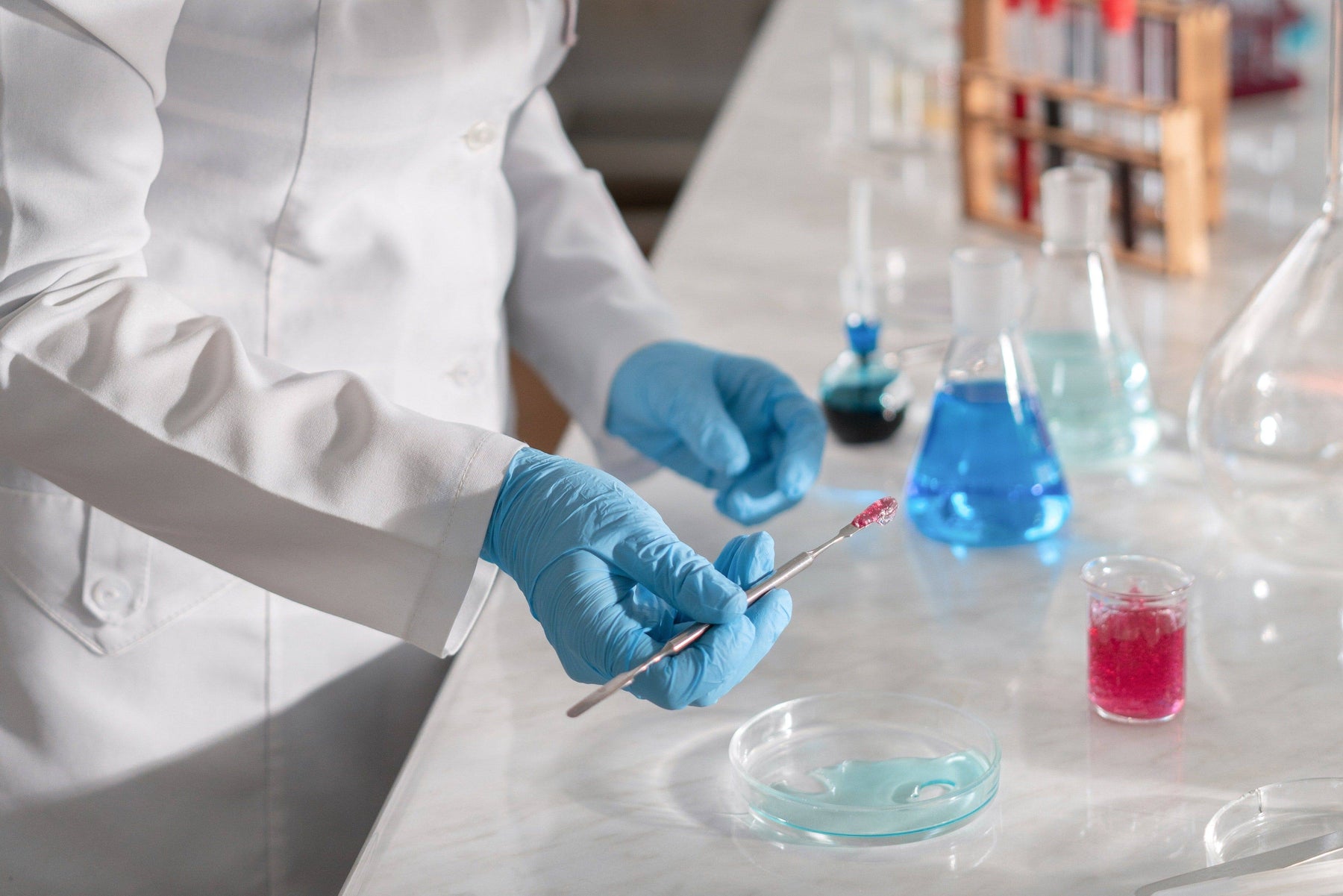
Five Common Chemicals that Require Disposable Gloves
1. Pesticides
Chemicals such as naphthalene and paradichlorobenzene are commonly found in pesticides and are among the chemicals that require the use of disposable gloves. Latex, nitrile, and vinyl disposable gloves are all suitable to use when handling the chemical naphthalene. But only nitrile gloves are recommended when handling paradichlorobenzene. Nitrile is a synthetic rubber with excellent chemical resistance and protects against paradichlorobenzene. Nitrile gloves are three times more puncture-resistant than latex and are more chemical resistant than latex or vinyl.2. Specialty Chemicals
Specialty chemicals such as Iodine, printing ink, and lubricants are chemicals that require disposable glove use. These specialty chemicals are commonly used in agriculture, electronics, construction, and also in consumer goods such as detergents, perfumes, and paper. Because they vary depending on the application, specialty chemicals should always be handled with care.
Iodine
Commonly used in medicines and animal feed supplements, iodine compounds may be considered specialty chemicals. Iodine is an essential nutrient, but too much exposure has been linked to thyroid complications. Vinyl, nitrile, and latex gloves all provide sufficient protection when handling iodine.
Printing ink
The printing ink contains carbon black, and it poses danger as it is carcinogenic. Ink is used for a variety of purposes, and overexposure may be risky. Latex and nitrile gloves offer good protection from printing ink.
Lubricants
Often found in automotive applications, lubricants contain mineral oils and may be carcinogenic. Nitrile gloves offer protection from this specialty chemical nitrile is highly puncture resistant and offers protection from many common engine chemicals. Latex gloves are not suitable for automotive work because they are not resistant to petroleum-based chemicals.
3. Lacquer and Paint Thinners
Lacquer and paint thinners are harsh solvents that should be handled with gloves. If workers use paint and lacquer thinners without gloves, they may experience dermatitis, skin irritation, and numbness. Nitrile and vinyl gloves are perfect for handling lacquers and thinners because they stand up to the specific chemicals that are typically found in these solvents. Latex gloves can also be used handling thinners, but for only a limited duration per glove pair.4. Salon Chemicals
Hazardous chemicals are surprisingly used in the beauty industry. Acetone, formaldehyde, trichloroethylene, dibutyl phthalate, and toluene are among the common chemicals that require disposable gloves. These chemicals are in many beauty industry products including nail polish, nail polish remover, nail and hair bonding glue, hair dye, and hair spray. Nitrile gloves should be used as they are more chemically resistant than latex or vinyl and offer three times more puncture-resistant than latex.5. Wood Stains
There is a variety of wood stain products available on the market. A single specific wood stain may have multiple hazardous chemicals in them. Wood stains contain chemicals such as latex, sodium hydroxide, ethylene glycol, and ethyl alcohol. Industrial grade nitrile, latex, or vinyl disposable gloves provide chemical resistance and effective protection depending on the chemical and duration of use.
Ethylene glycol
Although many wood stains are water-based, they still contain a small percentage of the solvent ethylene glycol. Nitrile, vinyl, and latex gloves all provide good protection against ethylene glycol in liquid form. In the solvent’s ether form, latex and nitrile gloves may be used for a limited time.
Sodium hydroxide
Sodium hydroxide is corrosive and has the potential to cause burns. Solutions of sodium hydroxide with up to a 50 percent concentration may be safely handled with latex or vinyl gloves. Nitrile gloves offer protection for safe handling concentrations of up to 100 percent.
Ethyl alcohol
Ethyl alcohol is also used as a solvent. Ethyl alcohol is highly flammable, and it may cause skin irritations. Nitrile and latex gloves are suited for handling wood stains that contain ethyl alcohol. Vinyl gloves can also be used, but only for a short time.
Latex
Some finishes are latex-based for a more solid finish and better color retention, but add risks for people with latex sensitivities. Nitrile and vinyl gloves are suitable for people with latex sensitivities or allergies, and these gloves provide superior chemical resistance. There are many common chemicals found in the home that require the use of disposable gloves. These chemicals can be found in many products including pesticides, paints, lacquers, and wood stains. Consumers should always check the manufacturer’s label and actively take steps to avoid exposure to chemicals by using the correct gloves with the recommended barrier protection.

Leave a comment